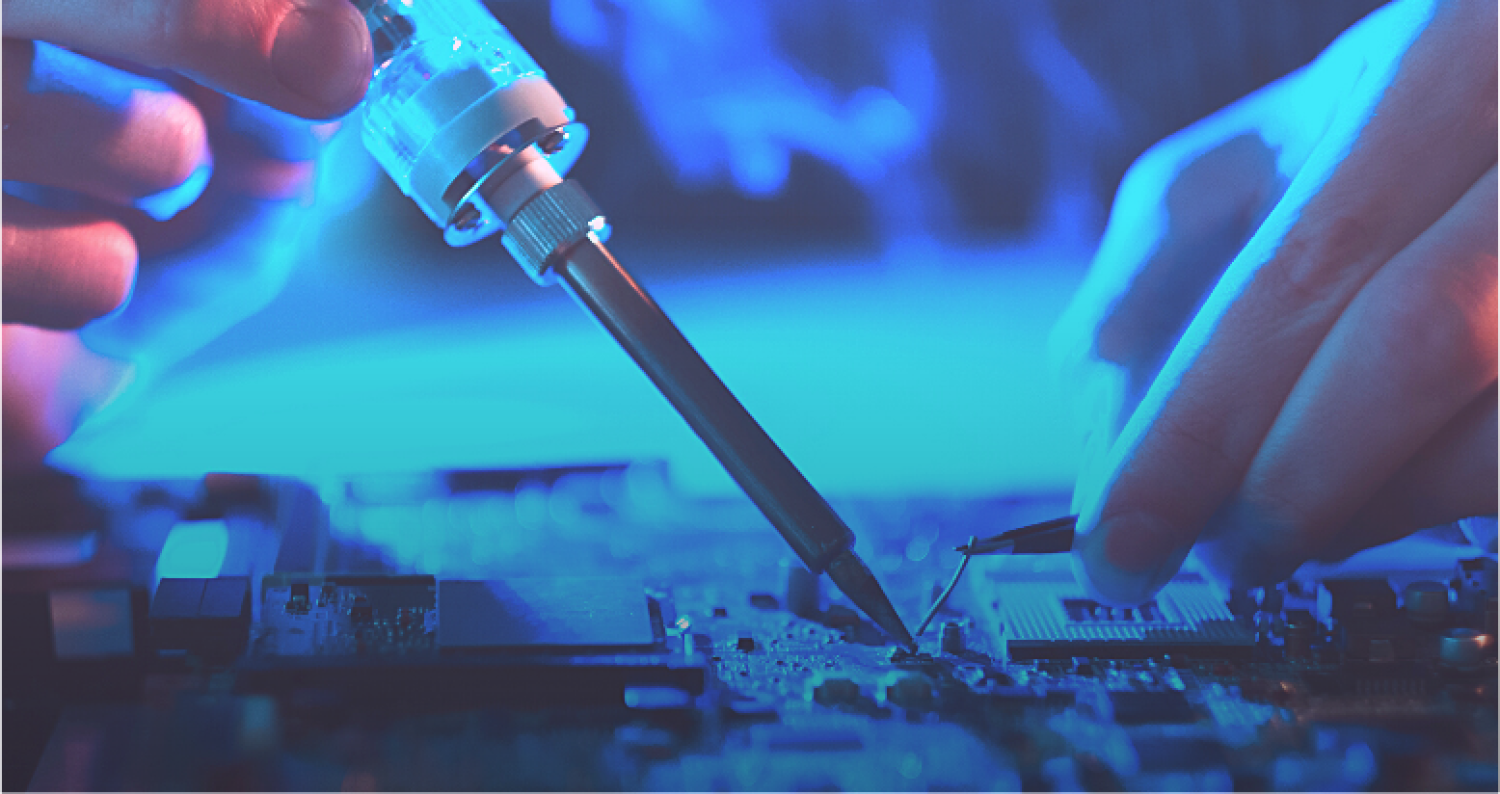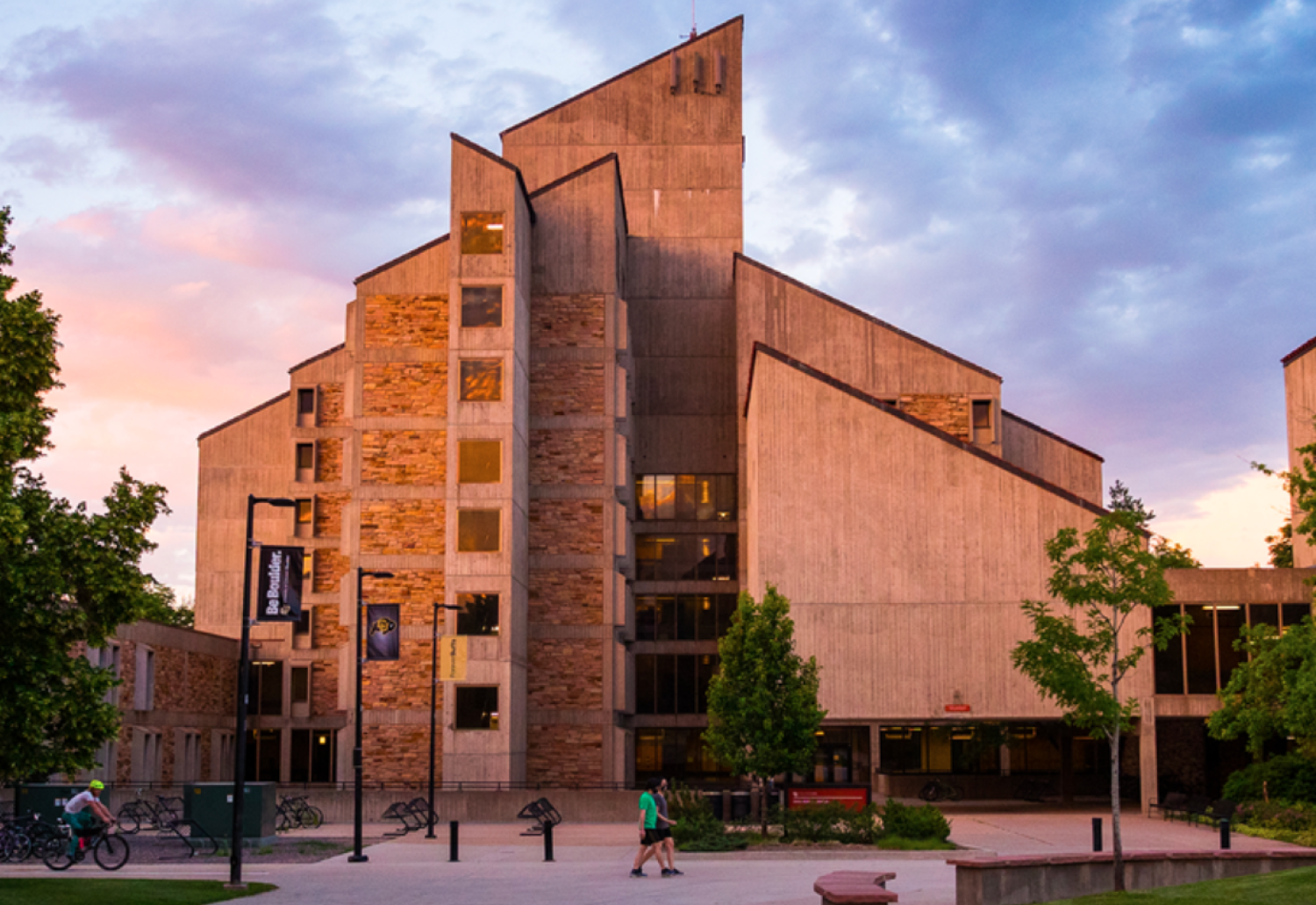Electrical, Computer & Energy Engineering Department News - September 23, 2024

We welcome your submissions for our weekly newsletter for faculty, staff, and graduate students. Please send a brief paragraph with what you'd like included to Carolanne Ayers before noon on Thursday to be included in the following week's newsletter!
Department News

Department Meeting - Thursday, 9/26
- Seminar by Melinda Picket-May
- My research focuses on the development and application of advanced computational electromagnetic (CEM) methods, particularly the Finite-Difference Time-Domain (FDTD) technique, to model complex electromagnetic fields with improved accuracy and efficiency. By enhancing algorithms such as M24 for two-dimensional and FV24 for three-dimensional applications, the challenges of modeling electrically large structures with high precision can be addressed Additionally, my work explores signal integrity (SI) in high-speed digital systems, addressing issues such as skew, impedance mismatches, and material characterization in printed circuit board (PCB) design and manufacturing. These efforts bridge the gap between theoretical research and real-world applications in both academia and industry. I will also highlight my educational research, which includes student-led projects to develop assistive technology devices for community use, as well as initiatives to improve engineering education through collaborative projects and student success strategies.
- Lunch: Mexican food
Faculty Announcements
On Thursday, September 26, ECEE PhD student Aoife Henry (Pao Group) will take her comprehensive exam from 9am-11am in ECEE 1B55D.
Main Office Renovation / Relocation Workgroup
Faculty members – if you are interested in helping to develop a proposal for either relocating the main office to the first floor or renovating its current location, please contact Robin McClanahan. The proposal will take several months to complete and must include input from stakeholders.
Hotel Space
The former associate chair office, 1B55A, in the ECEE main office, has been repurposed as a hotel space. The room features a large desk, a large round table and 4 chairs, a desktop monitor, and a large wall-mounted monitor/TV. The room is unlocked and is available on first come, first served basis. Contact Robin McClanahan with any questions.
Dissertations Available
The Graduate School has decided that all thesis/dissertations that have been digitized and stored in CU Scholar/ProQuest meet retention requirements and there’s no need to keep physical copies of these documents in the department any longer. The digitized thesis/dissertations have been identified and separated from the non-digitized. They are now available for faculty and students to look through and select any that they would like to have for their offices or labs. Please stop by the main office anytime through September 30 to make selections. Contact Robin McClanahan with any questions.
Upcoming Events
Quantum Seminar Series - Dr. Michael Foss-Feig
When: Monday, October 7th (Refreshments at 3:30pm., Talk begins at 4pm)
Where: CASE Auditorium
The computational power of random quantum circuits in arbitrary geometries
Empirical evidence for a gap between the computational powers of classical and quantum computers has been provided by experiments that sample the output distributions of two-dimensional quantum circuits. Many attempts to close this gap have utilized classical simulations based on tensor network techniques, and their limitations shed light on the improvements to quantum hardware required to frustrate classical simulability. In particular, quantum computers having in excess of 50 qubits are primarily vulnerable to classical simulation due to restrictions on their gate delity and their connectivity, the latter determining how many gates are required (and therefore how much indelity is suered) in generating highly-entangled states. Here, we describe recent hardware upgrades to Quantinuum's H2 quantum computer enabling it to operate on up to 56 qubits with arbitrary connectivity and 99.843(5)% two-qubit gate delity. Utilizing the exible connectivity of H2, we present data from random circuit sampling in highly connected geometries, doing so at unprecedented delities and a scale that appears to be beyond the capabilities of state-of-the-art classical algorithms. The considerable diculty of classically simulating H2 is likely limited only by qubit number, demonstrating the promise and scalability of the QCCD architecture as continued progress is made towards building larger machines.
Student News
GradCO Professional Development Series - Fall 2024
Join the GradCO Professional Development Series this fall! Founded in 2020, GradCO brings together universities across Colorado to offer high-quality workshops, sessions, and trainings for graduate students and postdoctoral fellows. This series provides a unique opportunity to learn from experts at various institutions and connect with fellow early career scholars.
Fall 2024 Workshops:
- Career Exploration & Planning
- Sept. 25, 12 – 1:30 p.m. via Zoom
- Hosted by University of Colorado, Anschutz
- Conducting Literature Reviews
- Oct. 1, 12 – 1 p.m. via Zoom
- Hosted by Colorado School of Mines
- Navigating Imposter Syndrome in Grad School & Beyond
- Oct. 10, 12 – 1:30 p.m. via Zoom
- Hosted by University of Colorado, Boulder
- Leadership, Research, and the Power of Radical Candor
- Oct. 24, 12 – 1:30 p.m. via Zoom
- Hosted by Colorado State University
- Emotional Intelligence
- Nov. 6, 12 – 1 p.m. via Zoom
- Hosted by Colorado School of Mines
- Proposal Writing: Image Use in Proposal Writing
- Nov. 14, 12 – 1 p.m. via Zoom
- Hosted by University of Colorado, Boulder
For more details and to register, visit GradCO.
Call for Applications: U.S.-Denmark-Program NSF-IRES-INNOVATOR - Summer 2025
We are excited to announce an international research opportunity for Summer 2025 under the U.S.-Denmark-Program NSF-IRES-INNOVATOR. This U.S.-NSF-funded project supports U.S. students’ research in Artificial Intelligence (AI)-Power and the Center of Reliable Power Electronics (CORPE) at Aalborg University (AAU) in Denmark. Students will be prepared technically and culturally at Georgia Southern University before their international research experience.
Eligibility: Open to students from any level in electrical and computer engineering, computer science, mechanical engineering, engineering, or related fields.
Application Details:
- Program Information: Visit U.S.-Denmark-Program NSF-IRES-INNOVATOR for details on eligibility, stipends, and the application form.
- Past Experiences: Learn about past student experiences in Summer 2024 and 2023:
For more information, contact mdavari@georgiasouthern.edu.
IT News
MacOS 15 Sequoia
Apple has released its newest operating system, macOS 15 Sequoia. As is often the case with new operating systems, there are expected incompatibilities with a number of widely used applications at CU Boulder and beyond. Because of this, OIT recommends waiting to upgrade Apple devices to macOS 15 Sequoia until most incompatibilities are addressed. For more info: macOS 15 Sequoia Release Information page.
Secure Computing Quick Start Guide
OIT has developed a Secure Computing Quick Start Guide that will be included with each new Dell and Mac computer purchased through the CU Marketplace starting in August. The Quick Start Guides provide best practices and a link to step-by-step instructions for the initial set-up of new Windows and Mac computers. The Quick Start Guide will be reflected as an SKU in the invoice. This will add a $7.50 charge to Apple computers ordered through CDW and a $5 to $7 charge to Dell computers, based on the computer’s specifications. This cost will be reimbursed by OIT per speedtype on a quarterly basis for orders placed during the 2024-25 fiscal year. After this fiscal year, covering the Quick Start Guide cost will be the responsibility of ordering departments and will no longer be reimbursed by OIT. For more information: https://oit.colorado.edu/software-hardware/secure-computing.
Research License Server: ecee-flexlm-2.colorado.edu
OIT has sunset its Linux server support and outsourced it to a 3rd party: Crazy Penguins. There is a $30 monthly charge for this “proactive” (monthly updates, and patching security vulnerabilities) service and a $150 cost for “reactive” service (questions, requests, etc.). The ECEE department will cover these costs. If you need to contact Crazy Penguins, submit a request to: support@craftypenguins.net
IT Support
- Teaching Labs (Capstone, Embedded Systems, Power Lab, Optics, RF, Highspeed Measurements, Circuits) IT Support: http://itll.link/servicedesk
- Research Labs License Server Support: support@craftypenguins.net
- OIT Website https://oit.colorado.edu/support
- Research Computing: https://www.colorado.edu/rc/
- IT Service Center: Contact the IT Service Center (303-735-4357 or help@colorado.edu) for help with all OIT services including email and IdentiKey, Internet connectivity and other technology-related questions.
- Buff Techs Desktop Support: OIT provides no-cost software support for laptop and desktop workstations to faculty, staff, and students. You can also register your laptop to aid in recovery in case it is lost or stolen.
- Dedicated Desktop Support: Departmental IT Support customized for your needs.
- Network Troubleshooting: Submit this form to report network connectivity issues on campus.
- Classroom Technology Problem Reporting form: Submit this form to report an issue with technology malfunctioning in a classroom (except for the ECEE classrooms – contact Bret.Moreland@colorado or 303-503-7939 for support)
- Self-Service Help Request: Submit a request directly to the ITSC using ServiceNow
- Lightboard: Contact Andy Garcia, Andrew.Garcia-3@colorado.edu, in the Mechanical Engineering department for scheduling and technical assistance
- All other issues, contact Robin.McClanahan@colorado.edu or 303-492-6736.

